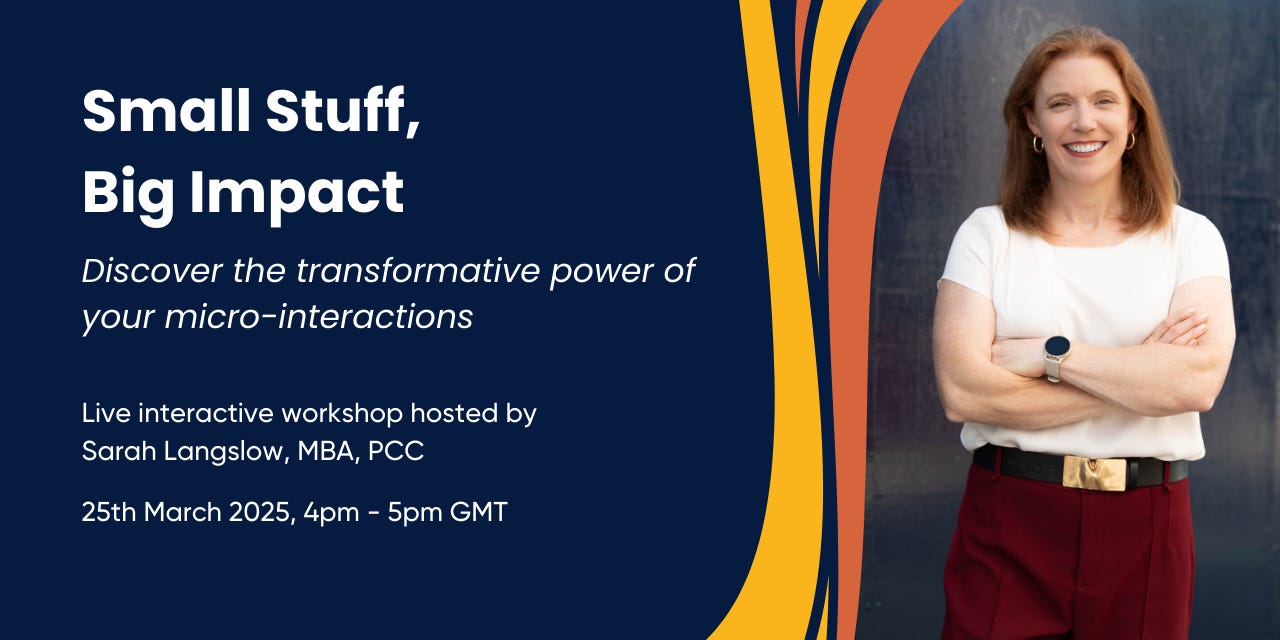Is your environment set up to help you thrive?
Or is it holding you back? It might just be having a bigger impact that you realise
I moved into my new office this week. The grin on my face says it all 🙂 No shade on those who love working from home, but for me the separation, the extra space and the lack of distractions really help me be productive and enjoy my work. It also maintains a healthy separation between work and life.
I’ve been without an external office since last August, when I was turfed out of my much loved Pimlico office because they are turning the building into luxury flats 🙄. This resulted in six months of working only from home, on a slightly too small desk, in a slightly cramped office, and with the contents of my old office taking over the spare bedroom making my whole flat feel cluttered.
Until this week, sitting back at my giant corner desk in a spacious office, and with my home feeling like my own again, I hadn’t realised the toll it had taken. Being here feels like a weight has lifted off my shoulders. As if I’ve done a big exhale, and suddenly everything feels easier and less stressful.
It reminded me of something one of my coaches once said to me:
“You can’t outperform your environment.”
Now, not everyone wants their own office, nor can everyone have access to that, at home or anywhere else – in that I acknowledge my privilege. Nonetheless, recognising when an environment isn’t working for us, and looking for whatever we can do to improve that will always be beneficial.
Equally, thinking in advance about how our environment affects our behaviour, our interactions, our stress and our happiness means we can shape and harness the power of our environment to achieve our objectives, rather than risk it working against us. Let’s explore a little deeper.
Physical environment
When we think about environment, this is usually what comes to mind: where we live and where we work are often the two most important.
Think about where you usually work. Is it set up for you to thrive?
Does the size, height and layout of your desk work for you? Is your chair comfortable? Do you have the option of a standing desk?
Does the overall space and its layout work for your needs?
Is the space cluttered, untidy and/or dusty or unclean? Or is the space clinical and soulless? How does it make you feel?
Does the lighting and décor create an ambience that inspires you?
Is the noise level supportive of your best work?
Does it make you feel comfortable and able to be productive in whatever you do?
This isn’t about everything being perfect, which is rarely possible, but about identifying things which aren’t working and doing something about them.
These are your irritations or your so-called “tolerations” (a term coined by Jim Bunch). Throughout our lives, we tolerate minor inconveniences like a light that is just a bit too bright, a slightly uncomfortable desk chair, or that pile of clutter sitting in the corner. But the moment we eliminate these tolerations from our lives, we notice an immediate difference.
Make a list of your irritations and tolerations and start to do something about them, in whatever way that’s possible. Even small changes can start to make a big difference.
We can be proactive about this too. One of the reasons I almost exclusively coach my clients online is that it gives them the option to choose the environment that makes them feel safe and comfortable to speak freely. I encourage them to think about where works, and we schedule our sessions in a way that allows them to be in that space.
The few times I’ve coached in person, it has often been a glass-walled meeting room in an office (see also: fishbowl 🐠) with people walking past and peering in. Whether for coaching, or any other type of private or personal conversation, that environment will always be distracting and uncomfortable and get in the way of what we’re trying to do.
Think about the conversation you want to have, and consider what type of environment will be supportive for that. Think also about the message it is sending. Does your choice of room/location say “You matter” or something a little less encouraging…?
“If your environment makes you feel stable, balanced, and grounded, you’re more likely to feel confident taking measured risks and exploring new opportunities.”
Ingrid Fetel Lee, Joyful: The Surprising Power of Ordinary Things to Create Extraordinary Happiness
Digital environment
These days, our digital environment is often just as important as our physical one. It’s easy to be overwhelmed with the amount of information coming at us, or to spend hours doom-scrolling on our phones. While some of this is tough to stop – the algorithms are really good at sucking us in – there’s a lot we can do to curate our digital environments so that they support us, rather than stress us out.
Our phones can be one of the worst for this. How proactive are you at managing what you consume online? Or where and how you spend your time?
Simple acts such as sorting your apps out and moving most of them off the home screen can bring a sense of calm rather than chaos, and reduce distractions. If you’re up for it, you could take Cal Newport’s more drastic suggestion and delete every app off your phone, only reinstalling them when you actually need them. It’s one way to get rid of needless electronic clutter.
The same is true for your laptop/computer. I know when my computer desktop gets out of hand it is a constant distraction, and tidying it up means I feel a little better every time I log on.
We can also actively manage more of what we see and do online. That could mean following/unfollowing on social media to curate our feeds, turning off/hiding notifications, unsubscribing from emails we don’t read, or deleting or making certain apps require more effort to find, thus increasing friction and making it less likely you open them in the first place. There are also apps to help you stay focused and stop you from opening stuff in the first place.
Just like our physical environments, if we aren’t intentional about creating a digital environment that works for us, we risk ending up in one that works against us.
Relational environment
You’ve probably heard the phrase “You’re the average of the five people spend the most time with,” a quote most often attributed to motivational speaker Jim Rohn. Along a similar vein, there’s also “show me your friends and I’ll show you your future” (original source is unclear).
While both phrases are a little trite, they have a lot of truth in them. However it goes much further than that. More recent research suggests that it’s not just about the five people, but all the people you surround yourself with, and their networks as well.
Who are you tolerating in your life who might just be a toxic influence? When we take action to manage, reduce and where possible eliminate spending time with those who hold us back or make us feel bad, it can feel like a weight lifted from our shoulders.
It’s not always easy to do, especially where the toxic individuals are relatives, and may take some time. Sometimes it may be about setting and enforcing clear boundaries, but either way, the work is worth it. In Broadcasting Happiness, Michelle Gielan dedicates an entire chapter to dealing with negative people. One approach she describes is what she terms a strategic retreat:
“A retreat may be cowardly, but a strategic retreat is courageous and can help creation conditions for a better relationship later on. Strategic retreats have long been used to win battles. In this sense, can use it to defeat the ill effects of someone else’s toxicity. A strategic retreat allows you the chance to regroup and re-enter the fray stronger than ever.”
Michelle Gielan
There are many more environments you could also consider: your financial environment, your health environment, your natural environment, spiritual environment and more. Each can benefit from attention and intention to set it up in a way that makes it work for you.
If you’d like to read more, have a look at:
How Our Environment Shapes Behavior, Health, and Happiness from Unmistakeable Creative;
The 9 Environments that Make Up Your Life by Srinivas Rao; and
You’re NOT The Average Of The Five People You Surround Yourself With
by David Burkus.
What do you think? Which environments do you actively manage, and which might you be neglecting? Leave a comment and start the conversation.
Making your environment work for you…
If you’re wondering about the difference it can make having the right people in your corner, read on…
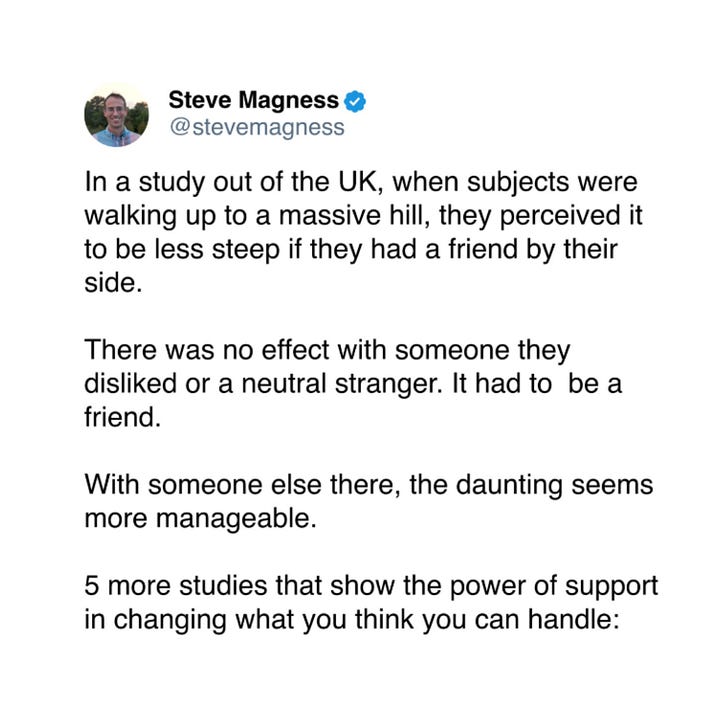
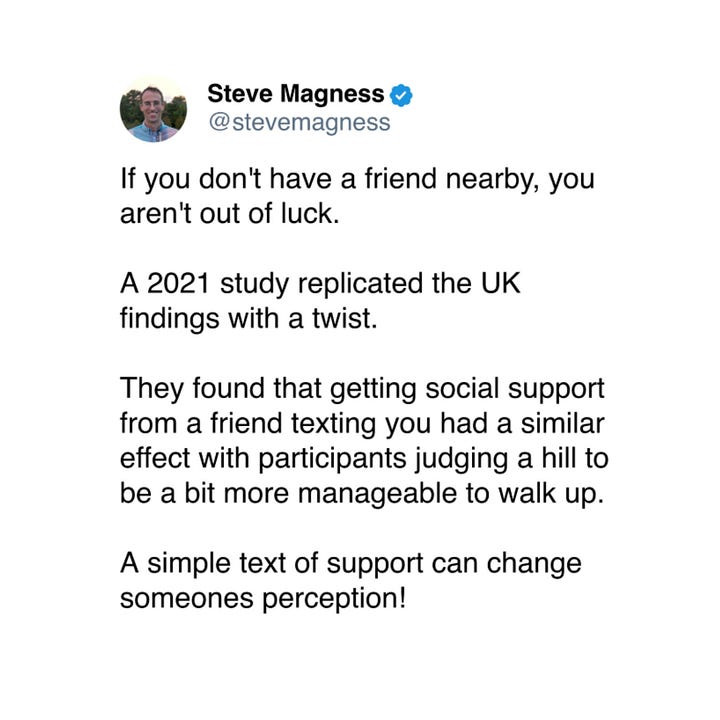
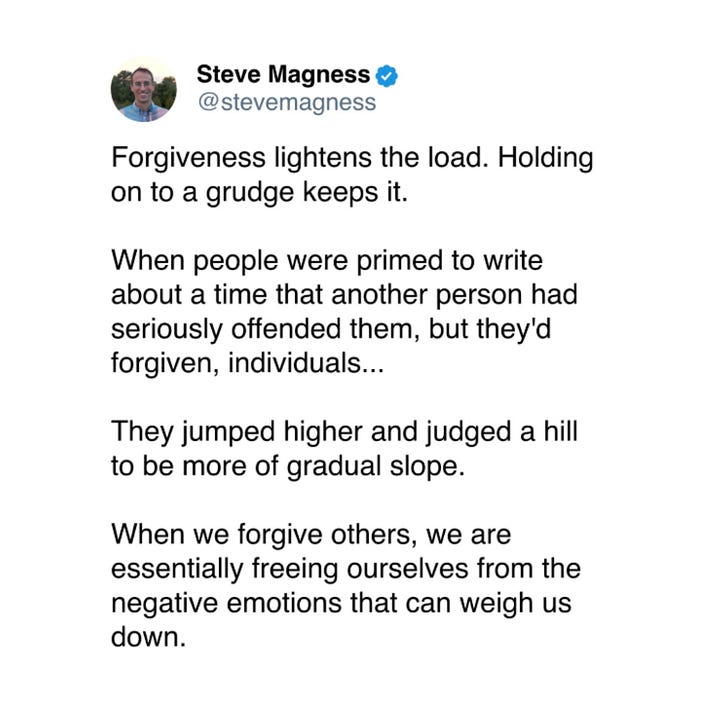
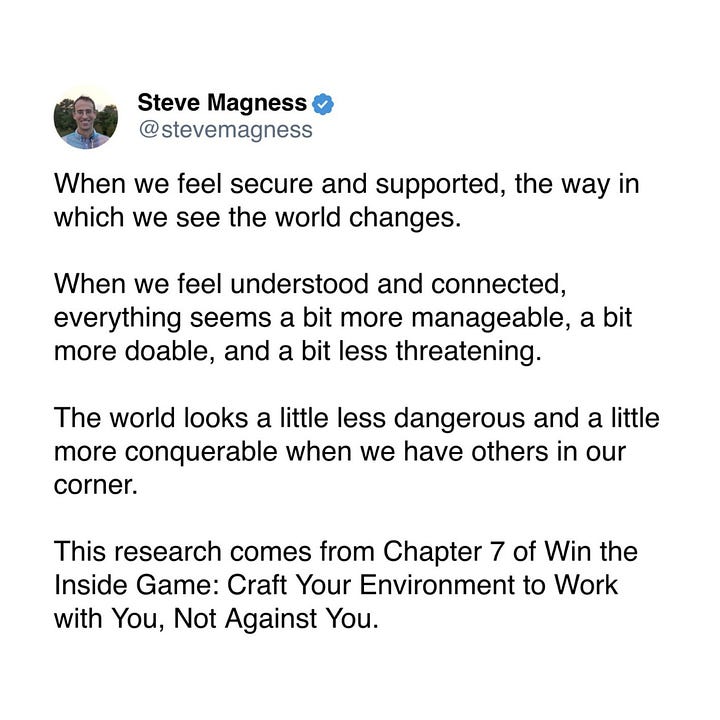
Join me for the next Small Stuff, Big Impact workshop
I’m running another Small Stuff Big Impact Workshop on 25th March at 4pm GMT.
Unlock the hidden power of small, everyday interactions with "Small Stuff, Big Impact: Discover the transformative power of micro-interactions" – this live, online (and complimentary) workshop will introduce you to the world of micro-interactions – those small, seemingly inconsequential moments that have a profound impact on your team’s engagement and performance. If you’re leading or managing others, mastering these moments is essential to building stronger relationships and creating a more motivated, connected team.
In this 60-minute introductory workshop, you will:
🌟 Learn what micro-interactions are and why they matter in leadership.
🌟 Discover how small adjustments in communication, tone, and behaviour can create a ripple effect, transforming your daily interactions into powerful tools for engagement.
🌟 Learn how to translate theory into action – you will leave with practical suggestions to start making subtle but effective changes right away.
Register for your place via this link, and please do share with anyone you know who might like to join.
Places are limited to ensure a truly interactive discussion, so sign up now to avoid missing out.
See you there!
If you know someone who you think would enjoy this, use this button to share it with them directly. See you next week!





